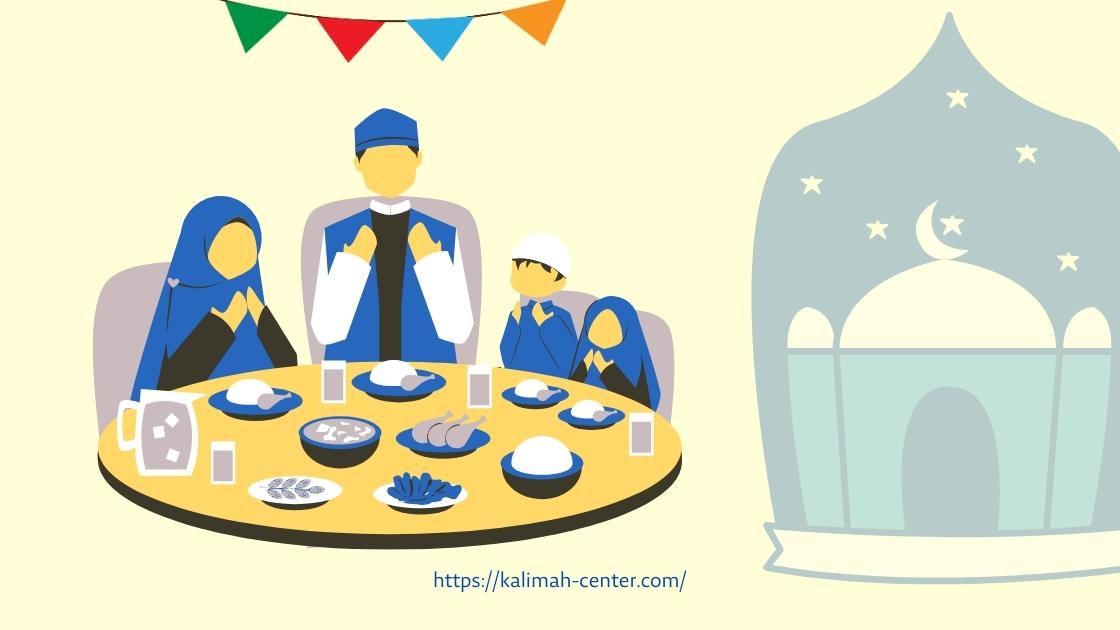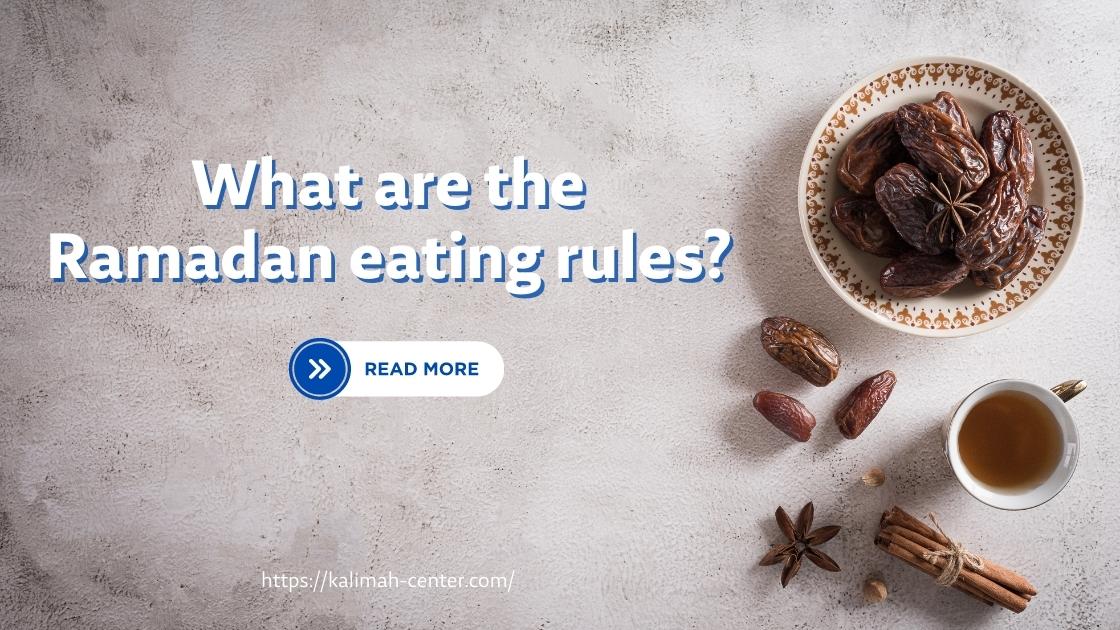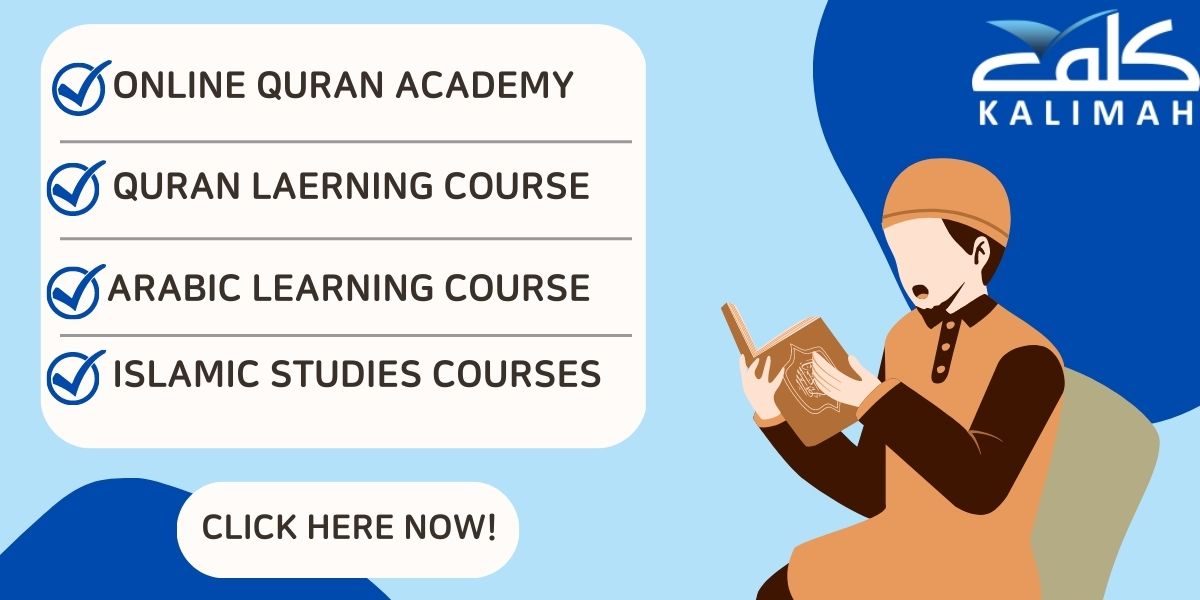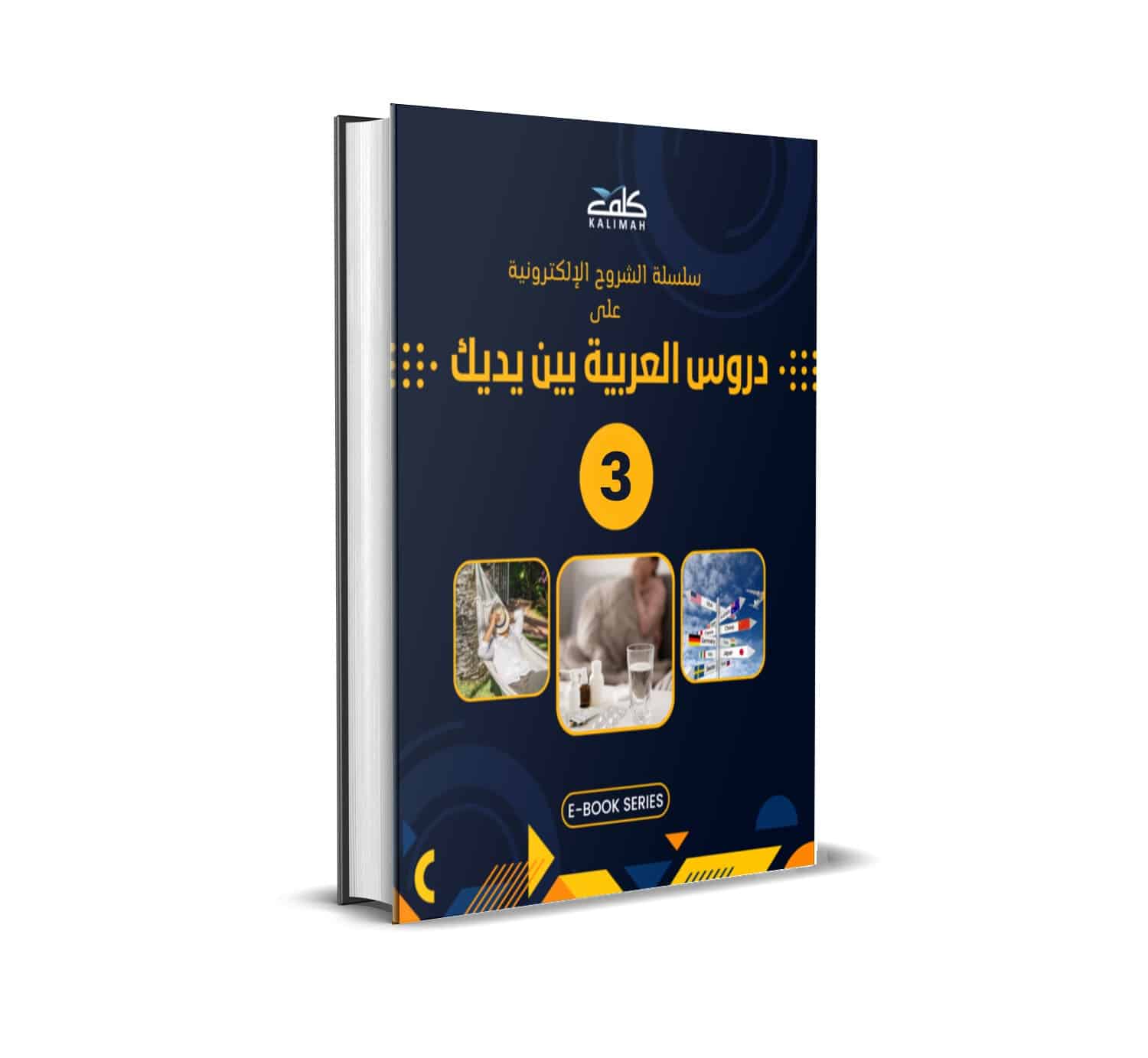In Ramadan, food is not the goal or the purpose, yet Muslims tend to enjoy it more than any other month. As it seems, being forbidden from eating for long hours teaches Muslims to value and enjoy food to great limits.
During Ramadan, Muslims don’t only cook the most delicious enjoyable meals, but also cook special meals that they don’t at any other time.
What are the Ramadan eating rules?
There are two main types of Ramadan Eating rules, the first has to do with the timing of eating and the second has to do with the types of food.
1. When can you eat during ramadan?
Eating rules during Ramadan aren’t many. In fact, there is only one rule regarding when one can eat during Ramadan, which is from sunset until sunrise.
Fasting Muslims are forbidden from eating or consuming any substances through their mouths from sunrise until sunset, and beyond that timeframe, they are free to eat whatever they want.
2. What foods to eat during Ramadan?
Muslims must at all time eat and drink Halal food and drinks; so, when a fasting Muslim breaks their fast, they must not eat pig’s meat, or drink alcohol.
All types of food can be eaten during Ramadan, as long as they are halal. So, consuming alcohol-based drinks, or pig’s meat in any of its forms is forbidden in Ramadan, and haram in general even after Ramadan.
Although anyone can eat anything after breaking their fast, some types of food are recommended by the prophet (salla Allah alayhi wa sallam) such as dates, and others have become quite popular during Ramadan in their local cultures.
Read More About What is Fasting During Ramadan in Islam? 2024 Full Guide!
What time should we stop eating during Ramadan?
During Ramadan, we should stop eating right before the Fajr prayer, and our prophet Mohammed (salla Allah alayhi wa sallam) has recommended us to hasten our fast-breaking, and make it right after the Maghreb prayer, and to have Suhoor, which is the pre-dawn meal, right before the Fajr prayer.
🌙 Ramadan Competition 2024
🌙 Embrace Ramadan with Al-Halaqah ($19 For The Entire Month Of Ramadan)🌟

Dive into the transformative world of Quranic recitation with Kalimah’s “Al-Halaqah” program this Ramadan! Join us starting from the first day of Ramadan until its blessed conclusion. Led by expert instructors, our interactive sessions will guide you through Tajweed rules and enhance your Quranic fluency.
Don’t miss out on this exclusive chance to deepen your connection with the Quran and join our vibrant community in Al-Halaqah. Secure your spot today and illuminate your Ramadan with the beauty of Quranic recitation! 🌟📚🕌 #Kalimah #AlHalaqah #QuranicRecitation #Ramadan2024
📅 Start Date: First Day of Ramadan
⏰ Time: Midnight (Egypt Time, UTC+2)
⌛ Duration: 30-60 Minutes
👥 Session Type: Group Learning
🎟️ Limited Slots: Only 10 Available
💲 Price: $19 for the Entire Month of Ramadan
📚 Enhance Your Recitation and Learn Tajweed Rules This Ramadan! 🌟
Click Here Now! Secure Your Place Now! Join Us on this Spiritual Journey! 🌙
What happens if you accidentally eat during Ramadan?
What happens if you accidentally eat during Ramadan, and more specifically during your fasting time? Well, if they genuinely forgot they were fasting and consumed something through their mouths, they can pretend it never happened, and continue fasting.
On the other hand, if they ate or drank anything during the daytime in Ramadan for any reason; sickness for example, they would have to fast a day after Ramadan to make up for the day in which they have broken their fast.
Can you eat during Ramadan during your period?
Fasting Muslim women can eat during Ramadan on her period. This is due to the fact that Muslim women are forbidden from praying and fasting while they are on their period.
While they aren’t required to pray their missing prayers, they have to fast after Ramadan to make up for the days in which they weren’t fasting.
Since they are not fasting, Muslim women are allowed to eat and drink as they wish.
To experience the magnificent spiritual elevation of Ramadan, they are allowed to recite the Quran on their cell phones, perform Duaa, and enrich their knowledge of Islam and the Arabic language through courses, such as the ones provided by Kalimah Center.
Can we eat gum during Ramadan?
No, we can’t eat gum during Ramadan. Although gums are usually not swallowed, they are haram to consume while fasting.
We can’t eat gum during Ramadan due to some of its contents mixing with the saliva which you swallow. Though, it’s halal to eat after you have broken your fast.
Food gets a lot of attention in Ramadan, and there are many dishes that are usually not served outside of Ramadan. So, don’t forget to tell us of your favorite Ramadan main dish and dessert.

What is the best food to eat during Ramadan?
The best food to eat during Ramadan has to be the food recommended by the prophet (salla Allah alayhi wa sallam).
He has recommended Muslims to follow his Sunnah of eating Rutab or dates in odd numbers to break their fast; thus, they became a Ramadan food. So, to break our fast, we can eat one, three, five, or seven Rutabs or dates.
Read More about What Is Ramadan In Islam? – 2024 Ramadan Guide
What are traditional Ramadan foods in different countries?
To trace the traditional Ramadan foods in different countries, we will have to take a magical bus and roam the sky, looking for our special stops.
1. Egypt’s traditional Ramadan foods:
In Egypt, fasting Muslim people pay great attention to what they eat before fasting, and after breaking their fast, and this stems from their cultural interest in food and cooking.
Egyptian usually include beans and yogurt in their Suhoor, while Mahshi (vegetables stuffed with rice or minced meat), Sambosa (triangles shaped slices of dough, that can be stuffed with anything: cheese, vegetables, meat, nutella…etc), and Bechamel Pasta with minced meat are in for the main meal of Iftar.
On the other hand, Koshary, which is a mixture of rice, noodles, lentils, and chickpeas with tomato sauce and fried onions on top, is rarely found during Ramadan in Egypt.
Though, sweet foods are the real treat after returning from the Taraweeh prayers. Egyptians particularly enjoy two types of desserts: Konafa, and Qatayf. While the first can be found at patisseries all year around, the second is rarely found outside Ramadan.
Read More about 2024 Ramadan Activities And Events: Sunnahs, Social, And Physical Ideas For Ramadan Activities
2. Malaysia’s traditional Ramadan foods:
Hearing about Malaysian recipes that are so strong, they can gather people from different cultures and races together, we had to stop and take a look at them.
During Ramadan, Muslim Malaysians enjoy Murtabak (which are pancakes stuffed with spiced minced meat, then fried, and served with pickled onions), Nasi Kerabu (naturally dyed blue rice served with fried chicken, raw vegetables salad, and chili paste).
Malaysians didn’t forget to enjoy sweet food during Ramadan; for their Putu Buluh is very distinguished. Basically, it’s a bite sized cake in cylindrical shapes, and it’s filled with palm sugar, and its top is covered in coconut.
3. Turkey’s traditional Ramadan foods:
Muslim Turkish people enjoy Hunkar Begendi, which can be translated to Sultan’s Delight, and it consists of lamb stew laid on top of aubergine slices.
Ramadan Pide is also widely enjoyed in Turkey during Ramadan, and it’s simply a pie that has crispy edges, and a soft tender centre.
Regarding desserts, Turkey is popular for its Baklava, which is usually served towards the end of Ramadan. That is not all; for we can’t skip Revani when discussing Turkish desserts, and it’s a fluffy cake that is soaked in sugar syrup.















